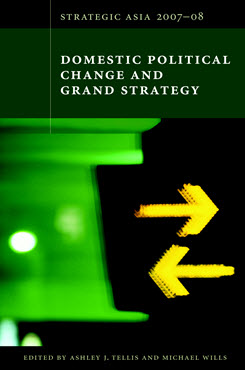Bangladesh and Pakistan
From Secession to Convergence?
This chapter analyzes the evolution of Bangladeshi and Pakistani domestic politics and the potential impact on their respective security, the security of India, and U.S. regional policy.
EXECUTIVE SUMMARY
This chapter analyzes the evolution of Bangladeshi and Pakistani domestic politics and the potential impact on their respective security, the security of India, and U.S. regional policy.
MAIN ARGUMENT
Both Bangladesh and Pakistan are experiencing a weakening of their political parties, a growing assertiveness of their respective armies, an erosion of democracy, and a strengthening of Islamist organizations. Islamist organizations still depend on the army’s goodwill in Pakistan but have emerged as kingmakers in Bangladesh, fulfilling the social role the state left empty. Both countries are at risk of becoming hubs of international terrorism as a result of increased political violence and Islamist militancy. Regionally, rapprochement between these two countries would be detrimental to India and beneficial to China, since Beijing could neutralize New Delhi through a series of bilateral alliances with countries on India’s periphery.
POLICY IMPLICATIONS
- If complacency or complicity of the Bangladeshi and Pakistani elites continues, both countries risk allowing a tiny minority—those identifying political Islam as their primary political identity—to ultimately determine both the bilateral relationship and the stability of the region.
- Even a low level of hostility between India and Bangladesh arising from Islamic activism on the border would likely strengthen relations between Dhaka and Beijing. China would benefit from an even more complete series of alliances in India’s immediate neighborhood, de facto neutralizing New Delhi.
- Long-term U.S. interests would be better served by a genuine democratization process in both Pakistan and Bangladesh. Unless current U.S. policy toward Pakistan changes, Islamabad’s increasing leverage will make it more difficult for the U.S. to apply pressures with regard to specific issues such as terrorism.
Strategic Asia
The Strategic Asia annual edited volume incorporates assessments of economic, political, and military trends and focuses on the strategies that drive policy in the region. Learn more about Strategic Asia.


